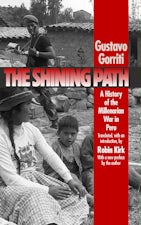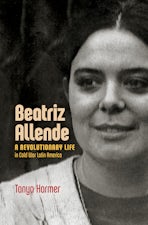The Investigative Brigade
Hunting Human Rights Criminals in Post-Pinochet Chile
By Pascale Bonnefoy Miralles
Translated by Russ Davidson
334 pp., 6.125 x 9.25, notes
-
Paperback ISBN: 978-1-4696-7016-4
Published: September 2022 -
Hardcover ISBN: 978-1-4696-7015-7
Published: September 2022 -
E-book EPUB ISBN: 978-1-4696-7017-1
Published: August 2022 -
E-book PDF ISBN: 979-8-8908-6124-5
Published: August 2022
Latin America in Translation
Buy this Book
- Paperback $29.95
- Hardcover $99.00
- E-Book $22.99
For Professors:
Free E-Exam Copies
Awards & distinctions
Shortlisted, 2023 Juan E. Méndez Book Award for Human Rights in Latin America, Duke Human Rights Center at Franklin Humanities Institute, the Duke Center for Latin American and Caribbean Studies, and the Human Rights Archive at the Rubenstein Library
To uncover this story, Bonnefoy gained the trust of detectives assigned to the cases and drew on their direct testimony. She excavated investigative files, witness testimony, and previously secret documents that helped her chronicle the dedicated brigade's dangerous mission. While substantial justice and institutional change took another decade to kick in, the detectives' work made it possible. Still unfolding, the post-Pinochet example is admired by many working for transitional justice around the globe.
About the Authors
Pascale Bonnefoy Miralles is an investigative journalist based in Santiago, Chile, and associate professor of journalism at the University of Chile, Santiago.
For more information about Pascale Bonnefoy Miralles, visit
the
Author
Page.
Russ Davidson, a distinguished translator, is curator emeritus of Latin American and Iberian Collections and professor emeritus of librarianship at the University of New Mexico.
For more information about Russ Davidson, visit
the
Author
Page.
Reviews
"...vivid...fast paced...deeply informative and engaging...Bonnefoy’s text illuminates the lived experiences behind the pursuit of justice, and the sense of duty that inspired the detectives involved in bringing about a democratic transition still monopolized by the military."—NACLA Report
"Investigative journalist Pascale Bonnefoy Miralles takes on the unusual task of interviewing the secret police unit that was given the job of unearthing the memories of torture and murder and holding the perpetrators accountable following the 1990 restoration of democracy in that country."—Progressive Magazine, a favorite book of 2022
"This is an extraordinary book. . . . This is a great book. . . . This is an encouraging book."—CNN Chile
"A gripping read by a scrupulous, dogged, and articulate investigator who writes from the point of view of the detectives themselves. Gave me a fascinating look behind the events unfolding in Chile's storied history of human rights and transitional justice, events that fill in important gaps in explaining how a country still under the sway of a former dictator could make such steady progress toward truth, justice, and reconciliation. For general readers and students alike."—John Dinges, author of The Condor Years
"This compelling, thrilling, and inspirational book takes a unique approach to the issue of accountability for human rights crimes: Bonnefoy tells the stories of the actual police detectives who investigated, tracked, and detained some of the most infamous human rights violators in modern history. Worthy of a broad audience among anyone interested in the pursuit of truth and justice for human rights atrocities."—Peter Kornbluh, coauthor of Back Channel to Cuba



